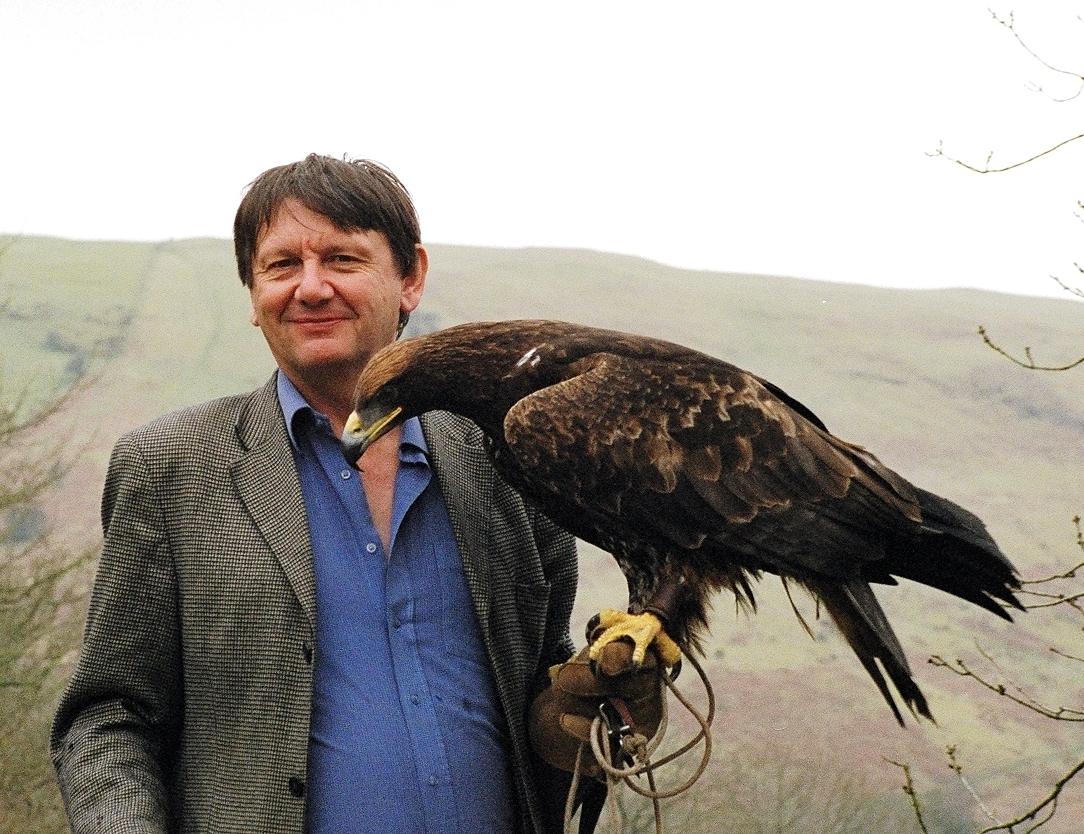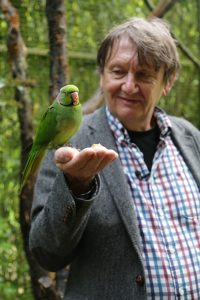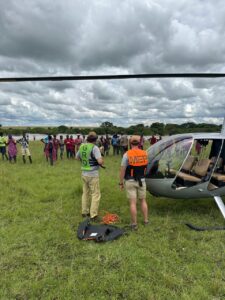
Professor Carl Jones is the Winner of the world’s leading award for animal conservation, The Indianapolis Prize. He’s being recognized this year for his major victories in saving an animal species from extinction and joins the ranks of past Indy Prize winners who are some of the most accomplished conservationists on Earth.
As the 2016 Indianapolis Prize Winner, Jones, Chief Scientist of the Durrell Wildlife Conservation Trust and Scientific Director of the Mauritian Wildlife Foundation, will receive an unrestricted $250,000 cash award and the Lilly Medal.
Spanning almost 40 years of work in Mauritius, Jones has brought back at least nine species from the brink of extinction — including the Mauritius kestrel, pink pigeon, echo parakeet, Rodrigues warbler and Rodrigues fody, and has worked to restore the populations of many more species. Through programs that implement hands-on animal husbandry techniques developed in contemporary zoological institutions, Jones has delivered results that are truly awe-inspiring: of the 63 bird, mammal and amphibian species worldwide that have been down-listed on the International Union for the Conservation of Nature (IUCN) Red List as a result of conservation initiatives, he has led the recovery efforts for six of them.
“I know of no other conservationist who has directly saved so many species from extinction,” – Dr. Simon N. Stuart, Chair of the IUCN Species Survival Commission
“Winning the 2016 Indianapolis Prize is undoubtedly one of the highlights of my career. It’s a great accolade not just for me, but for Gerry Durrell and the people who have made this work possible over the years. I’m particularly proud of this award because it validates the conservation of animals — like Telfair’s skinks and pink pigeons — that are not megavertebrates, but provide critically important ecosystem services nonetheless.” – Jones
Jones will be formally honored at the 2016 Indianapolis Prize Gala on Oct. 15, 2016 in Indianapolis.
More about Carl Jones
Jones is a declared disciple of the iconic British animal conservationist, Gerald “Gerry” Durrell, and like his mentor, he has a talent for bold missions. In the late 1970s, Jones traveled to the Republic of Mauritius — the island home of the famously-extinct dodo bird — to save another species that conservationists before him considered a lost cause: the Mauritius kestrel. At the time, just four kestrels remained in the wild, making it the rarest bird in the world. Jones not only prevented the Mauritius kestrels’ extinction, but also expanded their number substantially by releasing more than 300 captive-bred birds over one decade.
“Carl is living proof that by having the courage, talent and vision to take small steps, we can win victories for species large and small,” said Lee Durrell, MBE, Ph.D., and Honorary Director for Durrell Wildlife Conservation Trust. “Not only has Carl built upon the legacy left by Gerry, but he’s created his own — one that will endure for generations to come. We at Durrell are thrilled to have his remarkable work recognized by the Indianapolis Prize.”
 Jones recognizes the need to restore entire ecosystems, rather than just simply focusing on a species. When he approached the various politicians and decision makers in Mauritius with evidence of his success breeding kestrels, they responded, “We now need to have somewhere to look after them.” This spurred the expansion of Jones’ work from restoring individual species to restoring habitats.
Jones recognizes the need to restore entire ecosystems, rather than just simply focusing on a species. When he approached the various politicians and decision makers in Mauritius with evidence of his success breeding kestrels, they responded, “We now need to have somewhere to look after them.” This spurred the expansion of Jones’ work from restoring individual species to restoring habitats.
In 1994, he served as a key advisor to the Mauritian government to establish Black River Gorges National Park, the country’s first. As a result of Jones’ vision, work to restore nine highly-degraded Mascarene offshore islands, including Round Island, one of the world’s most important and long-standing island restoration projects, is currently underway.
Jones is credited with championing the idea of “ecological replacement,” a conservation tactic in which species outside of their historic range act as analogues to fulfill important ecological roles once held by extinct species. His projects include Aldabra tortoises, first brought to the island at the request of Charles Darwin in the late 1800s.
“Professor Jones’ achievements on the islands of Mauritius bear wide-ranging global significance,” said Crowther. “His conservation approach includes techniques that can be adapted and scaled for ecosystems in other areas of the world where species are at risk of extinction. His captive breeding and reintroduction programs now serve as models for what can be achieved elsewhere.”
Jones is committed to training and inspiring young Mauritians to build on his legacy and the island’s conservation capacity. As a charismatic leader, Jones grew his program team in
Mauritius into a conservation organization in its own right — now the Mauritian Wildlife Foundation (MWF). Today, MWF is one of the region’s foremost conservation NGOs. Over the last 30 years, more than 800 people have trained alongside Jones, and many now are working professionally in conservation or biology.
Born and raised in Wales, Jones received his masters and doctorate from the University of Wales in Swansea. He currently splits his time between Wales and Mauritius for his work.


